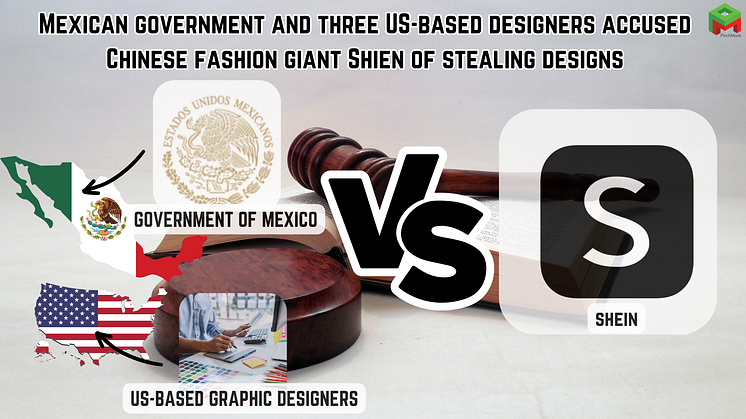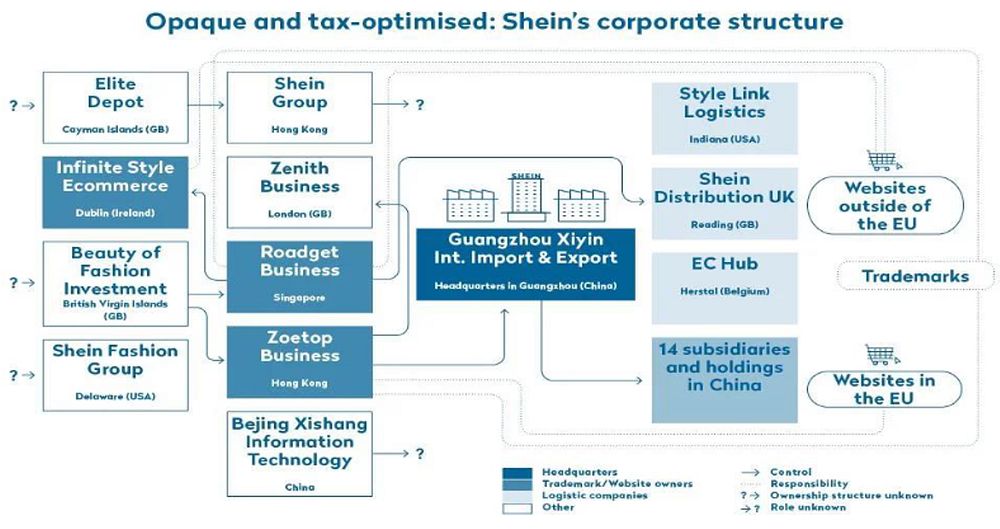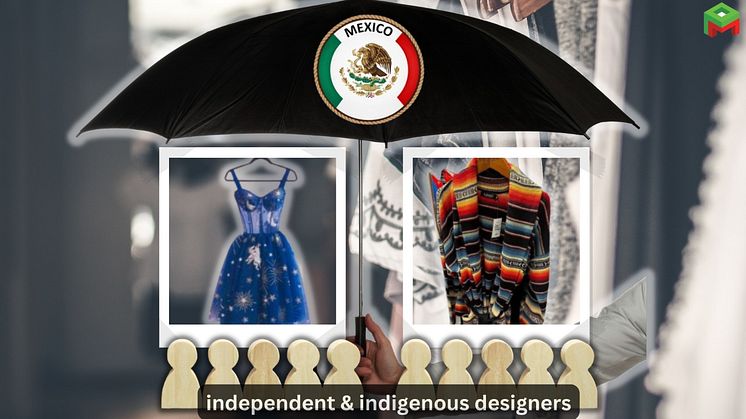
News -
Mexican Government and three US-based designers accused Chinese fashion giant Shein of stealing designs
The Chinese fast fashion giant Shein is facing new copyright infringement allegations emanating from two different nations. The Mexican Government accused the company of copying indigenous art, and a lawsuit has been filed in the United States by three fashion designers blaming the company for stealing their clothing designs.
The Ministry of Culture of the Government of Mexico sent a letter to Shein accusing them of “cultural misappropriation” as they detected “several garments with distinctive and characteristic elements of the culture and identity of the Nahua people of San Gabriel Chilac, Puebla, Mexico.”
The letter highlighted a round neck floral print t-shirt - Emery Rose – for comparison and stated that “for the inhabitants, these garments are not only embroidered flowers but also represent part of their biocultural environment and part of their history, as it is a knowledge that has been transmitted from generation to generation and whose symbolic meaning represents them as a people.”

The blouses and dresses made by the community in San Gabriel Chilac “are embroidered and are joined completely by hand, preserving ancient techniques taught from generation to generation and in which they express their cultural identity,” according to the letter.
In comparison, the clothes sold by Shein “are made of printed fabric and made in an industrial way” which “is causing severe damage to the economy of the community of San Gabriel Chilac, having no way to compete in the market with industrially manufactured garments.”
In addition to the “economic damages, there are moral damages, since they have also been stripped of their identity as a group,” the letter read.
The ministry also asked Shein to “explain publicly with what fundamentals privatizes a traditional cultural expression of collective property making use of cultural elements whose origin is fully documented”.
In 2022, PitchMark wrote about the Mexican Government sending a letter to Shein asking for clarification on the use of indigenous Mayan cultural elements in one of its products, which Shein later removed from its website.
Meanwhile, in a separate lawsuit filed in the United States under the Federal Racketeering and Corrupt Organizations (RICO) Act involving serial copyright infringement as the predicate offense, three designers accused Shein of stealing their designs and covering the evidences with complex algorithms and third-party companies.
The lawsuit alleged that Shein engaged in a pattern of copyright infringement essential to its e-commerce model—staying ahead of fashion trends for ravenous consumers—by stealing exact replicas of the artists' works, utilizing a labyrinth of shell companies, and blaming third-party vendors it operates when confronted about the practice.
As illustrated graphically in the complaint, Shein’s organizational structure demonstrates that the corporation is a decentralized set of entities, allowing it to "avoid liability" and "avoid disclosing basic information."

The designers allege that Shein employs "secretive algorithms" to establish fashion trends, which they claim "could not work" unless identical copies of artists' work are generated.
“There is no Coco Chanel or Yves Saint Laurent behind the Shein empire. Rather, there is a mysterious tech genius, Xu Yangtian aka Chris Xu,” the suit claims.
"Shein has grown rich by committing individual infringements over and over again, as part of a long and continuous pattern of racketeering, which shows no sign of abating," the suit alleges.
Krista Perry, one of the designers suing the corporation, stated that after her poster design was stolen, she approached the company, but they blamed the occurrences on a third-party seller and claimed the product had low sales.
They also offered her $500, which the lawsuit alleged was comparable with the experiences of other designers.
The RICO statute was first created in 1970 and has historically been utilized against organized criminal gangs and conspirators. There is, however, a provision in the act allowing for civil (as opposed to criminal) actions and observers have noted this seems to be the first instance of the statute having ever been used against a fashion designer. The complaint seeks both damages and an injunction preventing any further infringement.
In a statement sent to media outlet Insider, Shein said: "We take swift action when complaints are raised by valid IP rights holders" and "We will vigorously defend ourselves against this lawsuit and any claims that are without merit."
PitchMark published a story about US-based artist Magdalena Mollman, professionally known as Maggie Stephenson, who filed a US$100 million lawsuit against Shein accusing the company of selling her artwork without permission and at a very low price.
PitchMark helps innovators deter idea theft, so that third parties that they share their idea with get the idea but don’t take it. Visit PitchMark.net and register for free as a PitchMark member today.





